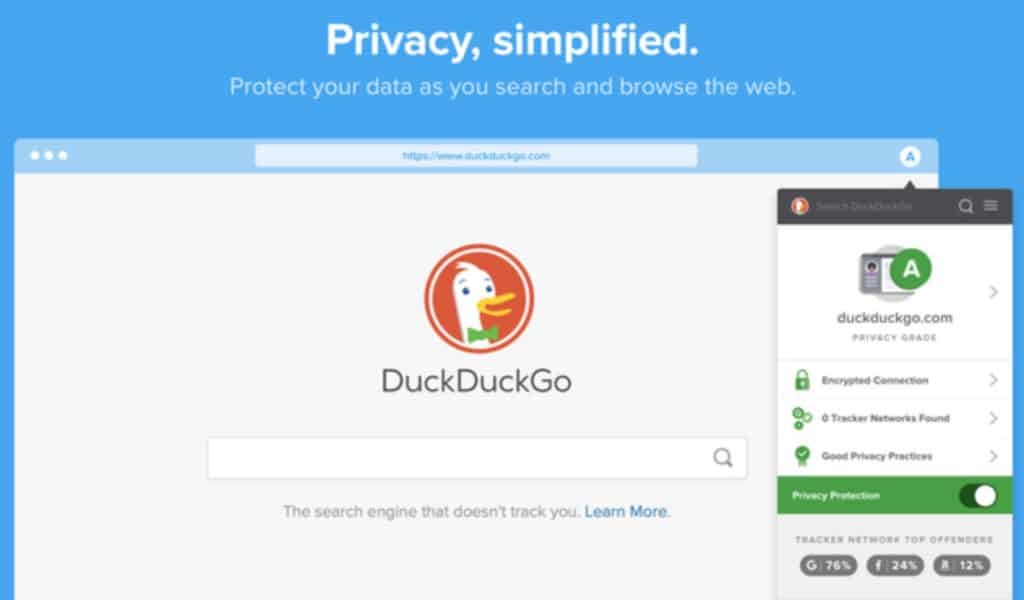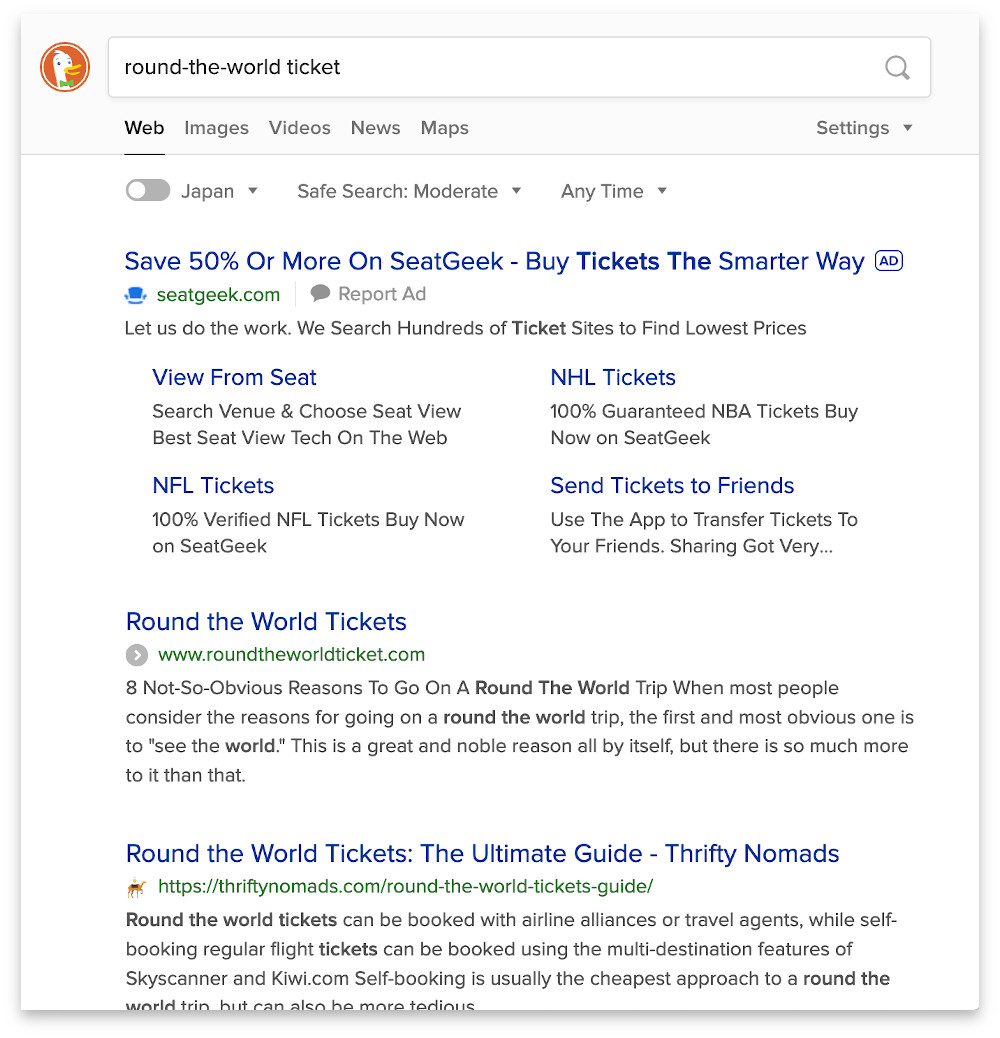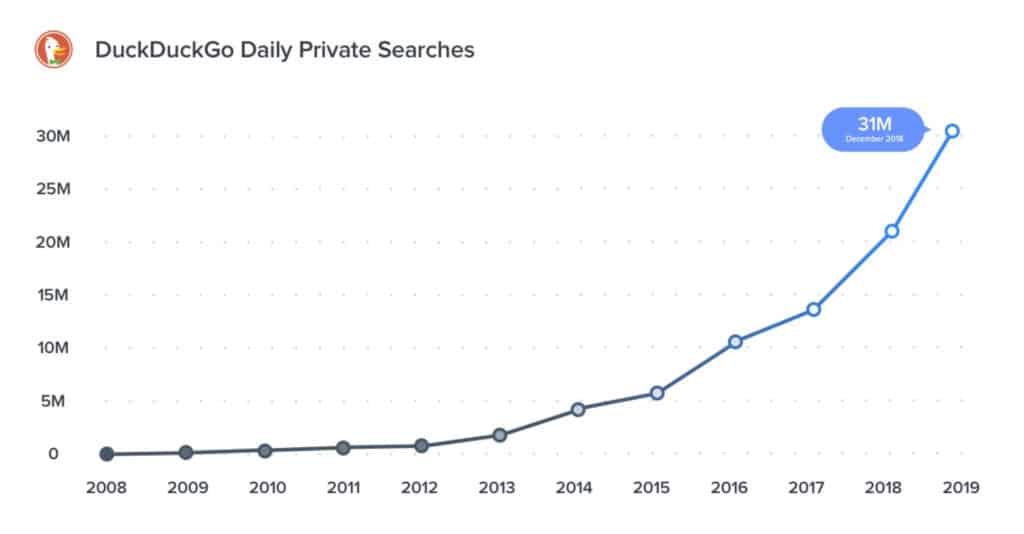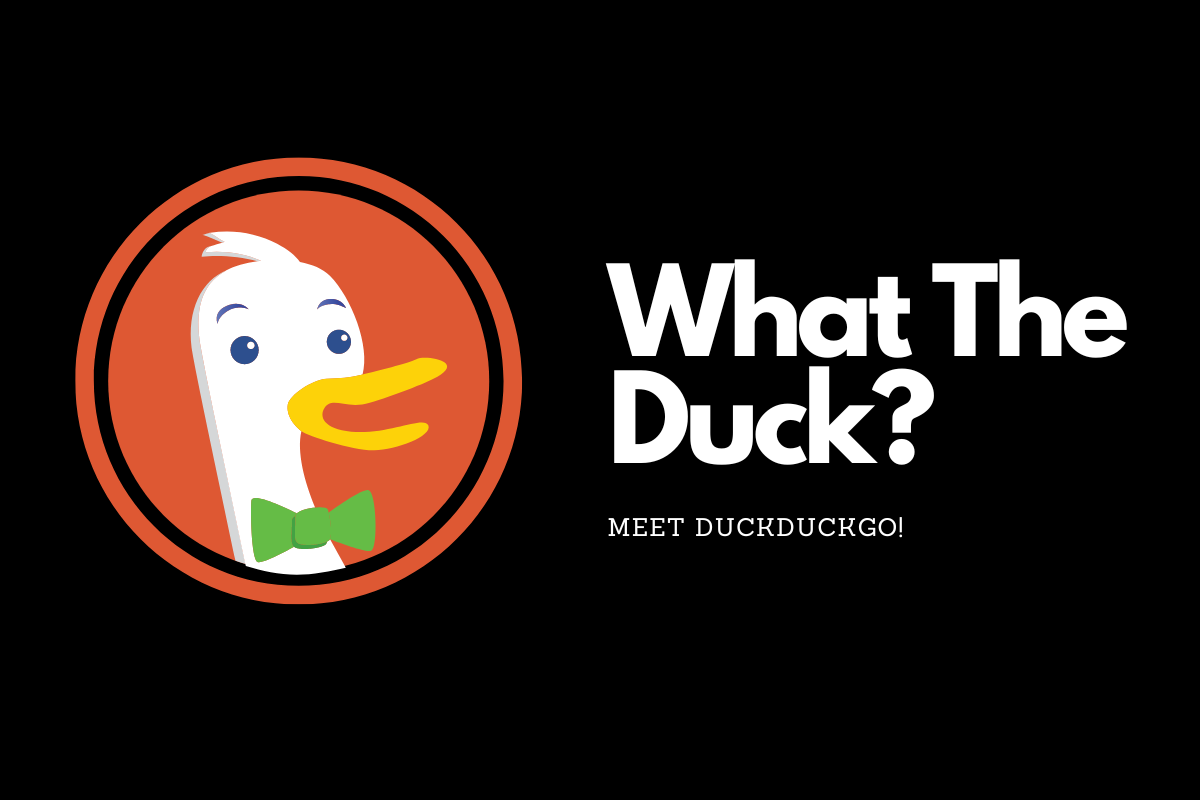Here’s literally everything you need to know about DuckDuckGo, a privacy-focused search engine that’s the best Google alternative right now…
Google search is currently a bit of mess. The SERPs have never looked worse and with The Big G being involved a slew of lawsuits, including a big one with The Department of Justice, more and more people are exploring alternative search engines.
And when you’re talking about alternatives to Google, one of the most popular is DuckDuckGo – a privacy-focussed browser that built its reputation on NOT tracking its users. Although there have been some controversies along the way.
Is it worth ditching Google for DuckDuckGo? Here’s everything you need to know about one of the most widely used privacy-focussed search engines on the market…
DuckDuckGo Explained: A Complete 101 Beginner’s Guide

Search Engine Technology
DuckDuckGo utilizes a unique combination of over 400 sources, including its own web crawler, to compile search results. By leveraging APIs and partnerships with various providers like Apple Maps and Bing, DuckDuckGo’s search engine is as robust as can be. And in the space of the last few years, it has improved massively.
It is NOT Google. It doesn’t use Google at all, so when you search something on DuckDuckGo, you get dramatically different results. Back in the day, this wasn’t actually a good thing.
But for the last several years (at least), DuckDuckGo’s Bing-powered results (in my experience) are vastly improved. It’s news selection is brilliant (way better than Google’s) and it doesn’t foist YouTube and other social networks on you nearly as much.
You’re likely to come across a higher degree of nuance inside DuckDuckGo’s SERPs as well, contrasting views and opinions, and that, in my opinion, is a very good thing indeed – too much consensus isn’t good for anybody.
Privacy and Security

DuckDuckGo’s core value is protecting user privacy. Alongside other tech firms like Brave and Proton with its Proton Mail and suite of applications that place users’ data and security first.
When you search on DuckDuckGo, your search queries are not tracked, and no personal information is collected or shared with third parties. DuckDuckGo also offers a feature called “!bangs” which allows you to search directly on other websites while maintaining your privacy.
As data privacy becomes more and more important to users, search engines like DuckDuckGo that place an emphasis on NOT using your data against you are only going to become more and more popular.
Google is now just an ad network, its SERPs are packed with adverts, parasite pages, and myriad other useless listings (Reddit discussions, Quora, and out-dated UGC from forums).
Switching to Bing (as I have done recently) or DuckDuckGo feels like a breath of fresh air. Bing is great but, like Google, it has a lot of ads and other filler content.
DuckDuckGo is much more stripped-down with far fewer distractions, allowing you to quickly find what you’re looking for an complete your search.
Features and Services

Remember back in the good ol’ days when you’d Google something, click a result and read an article? It was simple. It worked. People loved it. Well, that’s kind of what DuckDuckGo is like to use – it reminds me of how Google was 8+ years ago.
The “Instant Answers” feature provides quick, concise answers to common questions right at the top of the search results. The “!bangs” feature allows you to search directly on thousands of websites by simply typing “!” followed by the site’s abbreviation.
And the best part? DuckDuckGo has a built-in tracker blocker that blocks all adverts and scripts from scraping your data and following you around the internet.
DuckDuckGo never tracks you. And when you leave our search engine and use our browsers or extensions to browse other sites, we aim to protect your privacy as much as possible with multiple layers of privacy protections that are continually evolving to keep up with new tracking methods. Other browsers offer some of these by default, like cookie and fingerprinting protections, but we also provide many other protections that most browsers do not offer by default, like 3rd-party Tracker Loading Protection, Global Privacy Control, Link Tracking Protection, CNAME Cloaking Protection, Google AMP Protection, and more, which all help cover different tracking angles.
DuckDuckGo Blog
User Experience
DuckDuckGo’s user interface is clean, simple, and easy to navigate, as noted earlier. It ain’t going to win any UX awards.
But for what it is – a search engine – that’s totally fine. I just want the information and a site to read. I don’t need any fancy bells and whistles like Google SGE or TikTok videos to look at.
The search results page is uncluttered, with relevant information clearly displayed.
This is one of things I first noticed when I switched: there’s just far less stuff vying for your attention because DuckDuckGo isn’t reliant on you clicking on adverts or staying inside the search page (unlike Google).
On top of this, DuckDuckGo also lets you to customize the appearance of the search engine itself with different themes and settings. Again, not a major feature but certainly a welcome one.
Comparison with Other Search Engines
While Google remains the dominant search engine, DuckDuckGo is growing in influence with users that value privacy, away from Google’s million and one trackers. You can ditch Chrome, move to Brave or DuckDuckGo, and never be tracked online again.
Why more people are not doing this in 2024, I have no idea.
But with all of the lawsuits Google is currently involved in, as well as the current state of its search results pages, I think we’ll start seeing more and more people making the switch over to privacy browsers like DuckDuckGo.
DuckDuckGo may not have all the advanced features of Google, but it does provides high-quality search results that I find way more timely and nuanced than what you get with Google.
And DuckDuckGo has a tonne of more advanced settings under the hood that you can use to really make it your own.
If you’ve been getting the feeling that Google is now showing you stuff it thinks you should be looking at rather than what you actually searched for, I’d recommend you check out DuckDuckGo. I think you’ll be pleasantly surprised.
DuckDuckGo’s Business Model

Unlike many other search engines, DuckDuckGo does not rely on targeted advertising for revenue.
Instead, the company generates income through non-targeted advertising and affiliate partnerships. When you click on a sponsored link on DuckDuckGo, the company earns a small commission without tracking your personal information.
Brave is attempting something similar with its BAT (basic attention token), whereby users and publishers are paid for their attention with cryptocurrency, in this case a BAT.
Both methods are intended to upend the current way most websites and search engines monetise: advertising.
Neither will likely replace the more traditional form of making money from search any time soon, but it is nice to see tech companies creating new approaches to monetising search and content creation.
Integration and Compatibility
DuckDuckGo can be easily integrated into your browsing experience across various platforms and devices. For desktop users, you can set DuckDuckGo as your default search engine in popular browsers like Chrome, Firefox, and Safari.
Or, if you don’t want to do that, you can just use its browser extension which adds a DuckDuckGo search bar to your toolbar.
For mobile users, DuckDuckGo offers dedicated apps for iOS and Android devices with built-in tracking protection, content blocking, and the ability to perform private searches.
Or, if you want the fastest most private browser experience possible, run DuckDuckGo through Brave. I recently benchmarked the Brave browser on my Mac and the results were bonkers.
Growth and Market Share

While DuckDuckGo’s market share is still relatively small compared to Google, the company has experienced significant growth in recent years. As more users become aware of privacy concerns and seek alternatives to Google, DuckDuckGo has seen a steady increase in its user base.
There was a sharp rise in searches from 2014 onwards, a proper J-Curve style bump, and given recent times, I’d imagine that trend will continue for the foreseeable.
Since we do not track users, it’s impossible for us to know exactly how many users visit our site every month, though we are able to make an educated guess based on the number of searches we get per month. You might be wondering: how can we count searches without tracking people? Since searches are not tied to individuals and are therefore anonymous, we do not know who is making these searches, only that they occurred.
We can use our monthly search count to estimate how many people use DuckDuckGo by dividing the total by the average number of searches per person done on other search engines that do track their users. The monthly average is about 30 searches per person, or one per day on average. Of course, some people search way more and some way less; that is, the variance is high, but that is the reported average.
In any case, if you use those numbers, it works out to approximately 80 million people (as of November 2020)!
Source
So how big is DuckDuckGo now? The most conservative estimates look something like this:
- DuckDuckGo handles an average of 98.79 million search queries a day.
- Worldwide, DuckDuckGo claims a 0.66% share of the search engine market. In the US, it holds a 2.45% share.
- DuckDuckGo is the 2nd most popular search engine on mobile devices in the US.
Got more questions that need answering about DDG? Check out our DuckDuckGo FAQ page – it has answers to all the most common questions users have before making the switch.


